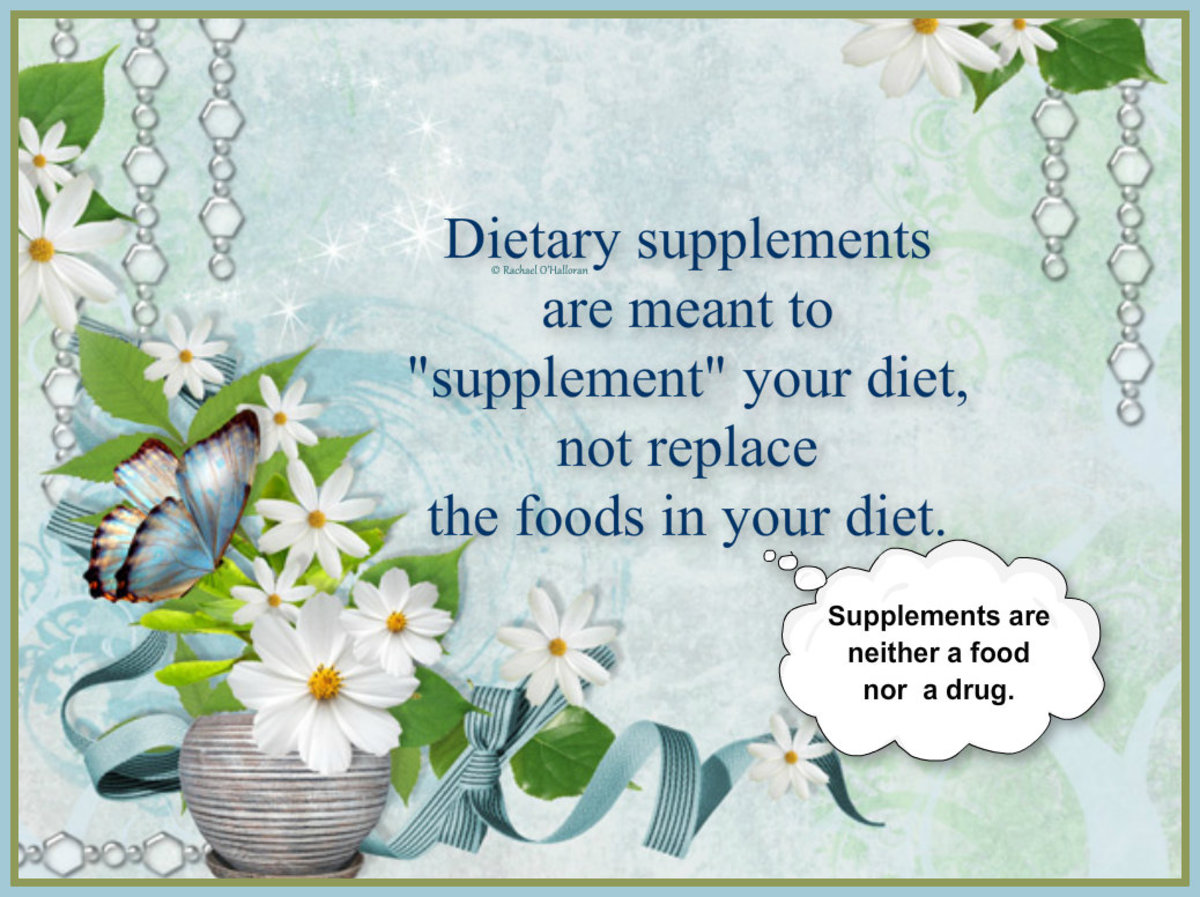Vitamins - Vital amines
The term vitamin was derived from "vitamine", a combination word from vital and amine, because it was suggested that the organic micronutrient food factors which prevented beriberi and perhaps other similar dietary deficiency diseases, might be chemical amine. This proved incorrect for the micronutrient class, and the word was shortened.
A vitamin is any important substance required by the body for normal function, which is not synthesized in sufficient quantities by the body, and must be obtained from the diet. It must be remembered that a vitamin for a human may not be a vitamin for another animal. So the term vitamin is conditional for animal to animal
There are 13 vitamins your body needs. They are vitamins A, C, D, E, K and the B complex thiamine, riboflavin, niacin, pantothenic acid, biotin, vitamin B-6, vitamin B-12 and folate). Our body can usually get all your vitamins from the foods you eat. Your body can also make vitamins D and K. Vitamin D from a process that requires sunlight hitting your skin (in sufficient amounts not too much). Vitamin K is produced by the bacteria in your gut and is important in the production of clotting factors in the liver. Newborn babies usually get Vitamin K supplements because their guts are sterile and do not have the vitamin K producing bacteria yet.

There a two classes of vitamins in the body, water soluble and fat soluble. Nine of the 13 vitamins are water soluble and are easily excreted in urine and are not stored in the body in large amounts, so daily intake is usually required, while fat-soluble can be stored in the body, which means there is a risk of toxicity (hypervitaminosis).
The fat soluble being A, D, E, K, and require fat and lipids to be absorbed.

Deficiency Diseases
Vitamin
| Deficiency Disease
|
|---|---|
Vitamin A
| Night Blindness, Keratomalacia
|
Vitamin B1
| Beriberi, Wernicke-Korsakoff syndrome
|
Vitamin B2
| Ariboflavinosis
|
Vitamin B3
| Pellagra
|
Vitamin B5
| Paresthesia
|
Vitamin B6
| Anemia peripheral neuropathy
|
Vitamin B7
| Dermatitis, enteritis
|
Vitamin B9
| Associated with birth defects
|
Vitamin B12
| Megaloblastic anemia
|
Vitamin C
| Scurvy
|
Vitamin D
| Rickets and Osteomalacia
|
Vitamin E
| Very rare; mild hemolytic anemia infants
|
Vitamin K
| Bleeding tendencies
|
The need to eat special foods was noticed even before vitamins were identified, for example it was known that eating livers of animals would cure night blindness, which we now know is caused by vitamin A deficiency. As we remember Vitamin A is fat-soluble and stored in the liver.
Also, livers of animals such as polar bears are avoided because of the high levels of Vitamin A they contain, which may lead to toxicity.
Deficiencies
Vitamin deficiencies can be caused by a number of conditions, but the most common cause is inadequate intake (malnutrition). An excellent example is in vegetarians who are at risk of vitamin and other trace element deficiencies if their diets are not adequately balanced.
Other common causes of poor intake is alcoholism which may lead to vitamin B complex deficiency particularly Thiamine.
Deficiencies may also be caused be malabsorption of vitamins secondary to diseases like gluten allergies or rare infective diseases such as Whipples' disease. Deficiencies may also occur due to increased demand as with cancers, where the is a high cell turnover in the tumor, consuming vitamins.
Supplements
Supplements are substances that contain vitamins and minerals usually in combination and amounts that would ensure that adequate amounts of nutrients are obtained on a daily basis. This is when adequate amounts cannot be met by a varied diet, or in special circumstances such as vegetarians, who through their diet may be at risk of some deficiencies.
There are currently many studies that have been done and are underway on the risks and benefits of supplements, with a wide spectrum of results - from hazardous to beneficial.
It is advised only to take supplements when it is thought that a diet or condition may predispose a person to a deficiency, or when a deficiency has been noted.
Supplements even though not regarded as drugs in some countries may be prescribed for a certain condition to help replace deficiencies or to help prevent deficiency. For instance, Folic Acid (folate) is recommended in pregnancy in some countries to help to reduce birth defects.
It is also important to inform your doctor about all supplements you are taking because some supplements may interfere with the action of drugs.
Conclusion
In conclusion, supplements are not to be started lightly as if candy. There are many ads and campaigns out there advocating daily supplement, but they are only necessary for special conditions. A varied healthy diet, should provide the necessary amounts of Vitamins for good health.
I do not fully agree that everybody need vitamins, but above is a video by Dr. Oz on some advice on vitamins.








